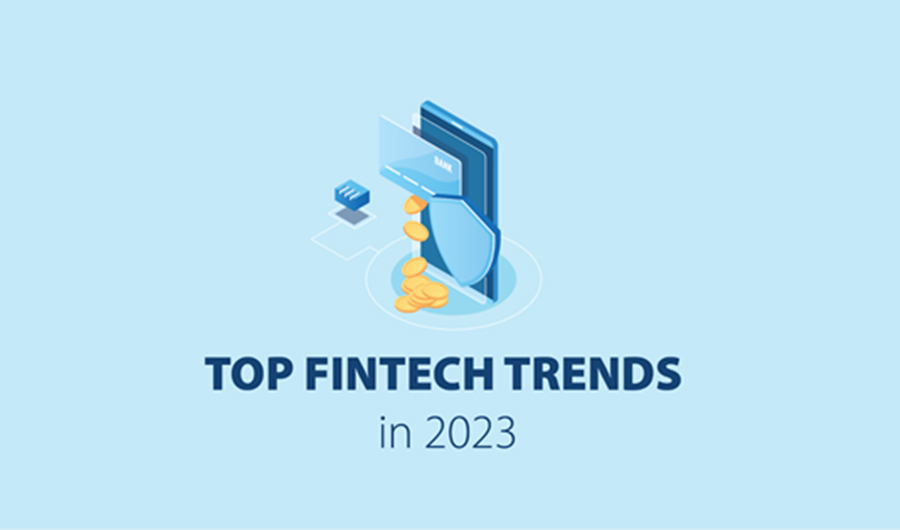
Top Financial Software Development Trends 2023
The growth of financial services has been significantly influenced by globalization, innovation, digital transformation, and shifting client needs in the banking sector. Numerous banking institutions throughout the world continue to benefit from advancements in blockchain technology, artificial intelligence and machine learning, cashless transactions, and many other technologies. Therefore, in the financial and banking sectors, these recently created solutions are referred to as FinTech. Rather than conducting hours of research on your own, it is most important to get important information about financial software development trends and services from professionals in the field.
So today we’ll explore the trends shaping the fintech market in 2023 and find out how they differ from fintech trends of the past few years.
7 Financial Software Development Trends

Artificial Intelligence
Artificial intelligence is nothing new in the financial industry. It has been a motivating factor in the banking and fintech industries. Any organization that develops fintech software is aware of the value of artificial intelligence in these solutions. Artificial intelligence will continue to rule the fintech sector in the future.
Therefore, regardless of your opinions of them, you should use various AI-driven solutions to expand your business. Well, but which ones? Of course, the game changer – speech recognition and chatbots are unique fintech software solutions based on artificial intelligence for both apps and websites.
These solutions are increasingly favored and deployed by the financial industry. There must be a valid explanation for this, then! They support daily customer service, encourage open communication, boost efficiency, and improve accessibility in the digital environment.
Banking as a Service (Baas)
Banking-as-a-service platforms have emerged as an affordable and efficient way to deliver financial services based on an open banking approach. Banks and financial institutions must adopt a service-oriented modular architecture approach to develop innovative digital services.
Banking as a Service is significant in accelerating the growth and development of the financial sector. It also helps companies meet rising customer expectations
Increasing adoption of banking APIs
APIs allows two applications to communicate and share data, bridging the gap between them. Similar to how they can communicate and exchange information with other fintech businesses, banks can also use banking APIs. These APIs’ major objective is to facilitate user accessibility, usability, and simplicity of the backup process.
Banks can use banking APIs to enhance services and increase revenue. In addition, third-party fintech companies may use shared data to improve, expand their services and enhance the consumer experience. Globally, 75% of the world’s top 100 banks will have enabled public APIs in 2022, according to McKinsey Research.
Accelerate the shift to mobile banking
Users of mobile banking in the current digital era investigate the mobile capabilities of banks before deciding whether to open an account with the particular bank. They won’t think twice about switching banks if they are dissatisfied with mobile banking services. As a result, just like in 2022, the effectiveness and quality of FinTech applications will be crucial in 2023. Neobanks need to pay more attention to these trends rather than just focusing on the mobile experience.
Brick-and-mortar banks must also leverage fintech software development services that specialize in creating world-class fintech applications to serve customers remotely – ensuring that banking applications deliver the functionality customers expect is crucial.
Robotic Process Automation (RPA)
Robotic process automation is a type of process automation in which tasks commonly performed by humans are all automated using software robots or virtual workers. RPA is already being used in the financial industry to reduce costs and improve overall company performance.
Additionally, the automation of many back-office tasks, including security checks, account management, credit card and loan processing, customer onboarding, spreadsheets, etc., is also undertaken by financial institutions using RPA digital workforce.
Decentralized Finance
Decentralized Finance (DeFi) is one of the freshest and best trends in finance. By 2023, businesses will rely on fintech software solutions integrated with different technologies. All financial interactions will occur in a more decentralized manner, including distributed ledger technology, big data, the Internet of Things (IoT), online P2P systems and edge computing.
Due to this fintech trend, payment and reimbursement systems have changed. Additionally, it will alter how loans, trade finance, and capital markets function in the years to come. Benefits like greater speed, cost effectiveness, and transparency will result from this.
Next generation digital bank
In order to promote the development of new FinTech software solutions, partnerships between banking institutions and FinTech software development service providers are expanding quickly. Digital banking is growing more and more common in today’s society, which was unanticipated, at least in this decade.
Keeping up with the latest developments in the fintech space is crucial, just like choosing the best software development provider. It enables you to significantly improve the quality of your FinTech software solutions, ensuring they suitably meet your company’s requirements.
Furthermore, the potential of fintech is limitless, as innovation is focused on rapidly developing new technologies. The business is committed to meeting customer needs for better and more diverse solutions and leveraging best-in-class FinTech software development services. We can confidently claim that following fintech trends and implementing these technologies is essential for your business to stay afloat.
How to implement financial software development trends?
The best way – hire the best fintech software development company. You can hire a company that develops and delivers innovative, advanced fintech systems combined with modern methods and cutting-edge technology. Always ensure that the company’s fintech software development services include card and payment systems, investment management services, digital and mobile banking solutions, and more.






